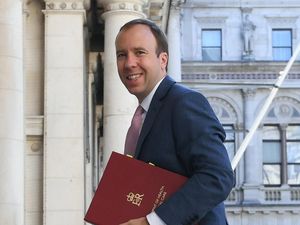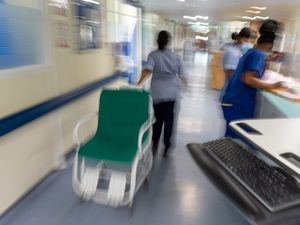Coronavirus isolation to increase to 10 days in UK amid ‘second wave’ warning
Health Secretary Matt Hancock said a new spike is ‘clearly’ emerging in Europe and ‘we’ve got to do everything’ to prevent it reaching the UK.

People who test positive for coronavirus or display symptoms must now self-isolate for 10 days as Health Secretary Matt Hancock warned of a “second wave starting to roll across Europe”.
The UK’s chief medical officers said on Thursday that the period must increase from the current rule of seven days because of the risk individuals may still be able to spread Covid-19.
In a joint statement, they said the change for those who experience the key symptoms of a new continuous cough, high temperature or loss of taste or smell is needed because of the “low but real possibility of infectiousness” up to 10 days.
Their move came as official analysis said England had the highest levels of excess mortality in Europe across the first half of 2020.
Mr Hancock earlier warned that a new spike in Covid-19 cases is “clearly” beginning to emerge in Europe as he said “we’ve got to do everything” to prevent it reaching the UK.
“I am worried about a second wave. I think you can see a second wave starting to roll across Europe and we’ve got to do everything we can to prevent it from reaching these shores and to tackle it,” Mr Hancock told Sky News.
He said 10-day isolation measure was “part of that, but so, too, are the measures we’re taking, for instance, to ensure that we don’t directly bring cases back to this country where there’s a big spike in cases”.
“So, absolutely, on a second wave it is something I worry about and I worry about it because we can see it happening,” he added.
The chief medical officers for England, Wales, Scotland and Northern Ireland said that it is “now the correct balance of risk” to extend the isolation period for those who test positive or have symptoms to 10 days.
“Evidence, although still limited, has strengthened and shows that people with Covid-19 who are mildly ill and are recovering have a low but real possibility of infectiousness between seven and nine days after illness onset,” they said.
Anyone with symptoms who has a Covid-19 test that comes back negative does not have to continue with the isolation period.
Government sources said the risk of people transmitting the virus seven days after onset of symptoms is pretty low and after 10 days it is even lower.
But they said the move had been made to provide “maximum protection” and to keep UK disease levels as low as possible.
Dr Shaun Fitzgerald, a Royal Academy of Engineering visiting professor at the University of Cambridge, said: “This change is important.
“Given that there is now stronger evidence which shows a real possibility of infectiousness between seven and nine days after illness onset, 10 days’ isolation seems very sensible.”
Meanwhile, Labour’s shadow health secretary Jonathan Ashworth described the Office for National Statistics analysis suggesting England had the worst death rate in Europe as a “devastating moment”.
“We can no longer hide from the fact the Government has not handled this crisis well and needs to urgently learn lessons from its mistakes,” he added.
The analysis said that by the week ending May 29, the death rate in England was 7.55% higher than the average for the previous five years.
Spain ranked second at 6.65%, followed by Scotland (5.11%), Belgium (3.89%) and Wales (2.78%).
The excess mortality measure is seen as the best way to compare deaths during the crisis because it takes into account not just Covid-19 deaths but those from the indirect impacts of the pandemic, such as delayed access to healthcare.
Mr Hancock also warned travellers that new countries could be added to the quarantine list in the coming days after passengers arriving in the UK from Spain were ordered to isolate for two weeks as cases there increased.
He said ministers are looking at ways to reduce the 14-day period, possibly by the use of multiple tests, amid pressure from the tourism industry.
The Government has also removed an exemption for health and care workers, who had originally been spared the 14-day quarantine process when arriving in England from high-risk countries.
The move, which comes into effect on Friday, brings them in line with the general public and officials said it will help protect the NHS and social care system from the spread of coronavirus from overseas.

But he said ministers are constantly considering whether to add countries to the quarantine list and when pressed if new nations could be added in the next few days, he replied: “Yes.”
Government data showed the seven-day average of new cases in the UK had increased to just over 700 compared to around 550 in the second week of July.
However, the figure remained far lower than at the start of May when the average was close to 5,000.





